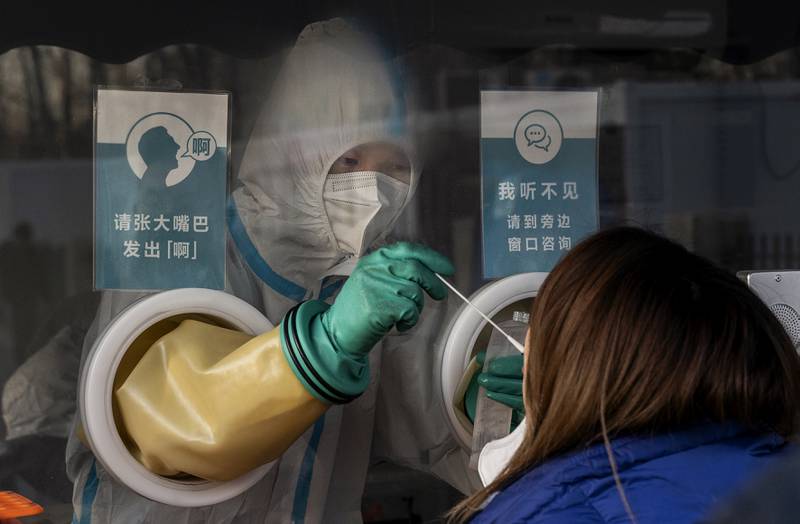30 million under Covid lockdown in China as cases spiral to highest since 2020

Nearly 30 million people were under lockdown across China on Tuesday, as surging coronavirus cases prompted the return of mass testing and hazmat-suited health officials to streets on a scale not seen since the start of the pandemic.
China reported 5,280 new Covid-19 cases on Tuesday, more than double the previous day's tally, as the highly transmissible Omicron variant spread across a country that has stuck rigidly to a zero-Covid strategy.
Though China's caseload is still small by global standards, health experts said the rate of increase in daily infections over the next few weeks would be a crucial factor in determining whether its tough "dynamic clearance" approach – aiming to contain each outbreak as soon as it arises – is still effective against the rapidly spreading Omicron strain.
A Covid-19 forecasting system run by Lanzhou University in China's north-west predicted that the current round of infections would eventually be brought under control early next month after an accumulated total of about 35,000 cases.
The university said in its latest assessment published on Monday that while the latest outbreak was the most serious on the mainland since Wuhan in 2020, China could bring it under control as long as stringent curbs remained in place.
At least 13 cities across China are currently in lockdown. The north-eastern province of Jilin has been worst hit by Omicron with more than 3,000 new cases on Tuesday, the National Health Commission said. Residents of several cities, including provincial capital Changchun, home to nine million people, are under stay-at-home orders.
Health officials said more than 8,200 Jilin residents have been admitted to hospital, with the vast majority showing mild or no symptoms. Shenzhen, the southern technology hub of 17.5 million people, is three days into a lockdown with many factories closed and supermarket shelves emptying, while China's largest city Shanghai is under a lattice of restrictions.
City officials said at a press conference on Tuesday "it is not necessary to lock down Shanghai at present", instead opting for more "precise" measures. Scenes of closed neighbourhoods, panic buying and police cordons cast minds back to the early phase of the pandemic, after the coronavirus first appeared in China in late 2019.
Although cases from the chaotic initial outbreak in early 2020 are widely believed to have been under-reported, life since then had largely returned to normal in China under its strict zero-Covid approach. Hong Kong, a special administrative region of China, is dealing with a dramatic rise in cases and deaths linked to Covid-19 after initially dealing with pandemic well.
Its 4,300 deaths in fewer than three months, mostly in care homes, have sparked criticism of Hong Kong leader Carrie Lam's administration over low vaccination rates and unclear messaging. A former government adviser on Tuesday condemned Ms Lam and called for her to "resign in shame". Wong Chack-kie joined a chorus of pro-Beijing loyalists in condemning Hong Kong's chief executive at a politically sensitive juncture for the city with a new leader to be selected by July 1.
Leading Chinese officials, including President Xi Jinping, are also expected to be in town by that date for the 25th anniversary of Hong Kong's handover from Britain to China. "If a leader is of any virtue, he or she should resign in shame after seeing so many elderly people die of policy faults," Mr Wong wrote in an opinion piece published on Tuesday in the Ming Pao newspaper, calling the Covid crisis a "man-made calamity".
"After the situation got out of hand, all the officials knew was to shirk the responsibilities by repeatedly emphasising that the outbreak had overwhelmed the government's capacity," the former top adviser to Ms Lam's predecessor Leung Chun-ying said.
